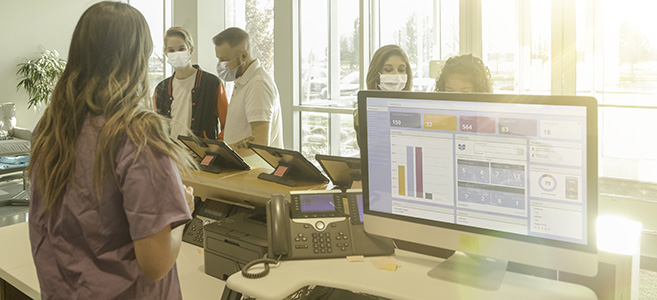
Helping teens prepare to manage their health as adults
When you turn 18, you’re considered a legal adult but unfortunately, there’s no playbook. In addition to all the typical responsibilities of adulthood, becoming more independent can be especially challenging for young adults with chronic conditions.
Keeping up with many appointments, medications and other routines is a lot – but there are ways parents and caregivers can help prepare teens for this transition. Shirley Alexander Das, MSW, LCSW, social worker on our nephrology team, helps kids with chronic kidney conditions and their families with this process every day and offers some insight into how all teens and families can go about it.
Ideally, when should parents and care teams start working toward helping kids prepare to manage their own care?
Transition is a slow process and it’s different for everybody, but the earlier you can start, the better. By age 12, we encourage our patients to know their health diagnoses and medications. Then we slowly work with them on managing their care.
I liken it to learning to drive. We don’t send 16-year-olds out on the highway by themselves until they’ve gone through the proper steps and had plenty of practice. Likewise, we can help kids increase responsibility for their health care by beginning with small steps. Over time, those steps will turn into greater levels of independence and self-care management.
What are some examples of small steps that can gradually grow into greater responsibilities?
Teens can start tuning in to what their parent or caregiver is doing so they can gain an understanding of what needs to happen. Then, they can practice doing one task at a time when the adult is with them. Eventually, they’ll be comfortable and confident enough to do these things on their own.
I encourage my patients to:
- Sit with their parent/caregiver to fill their pillbox for the next week.
- Listen to the adult calling the pharmacy for medication refills.
- Go to the front desk and make a follow-up appointment.
- Ask and answer questions during appointments, rather than letting the adults do all the talking.
- Familiarize themselves with their health insurance and understand why it’s important.
- Start using the patient portal along with a parent to review labs, request refills, etc. In fact, once kids turn 13, they can see MORE in the portal than their parents due to privacy regulations.
Where do you find adolescents and teens need the most help?
Learning the names of their medications and knowing what they’re for is a big one. I spend quite a bit of time orienting patients on their medications and getting them familiar with reading prescription labels.
I encourage my patients to download the Mango Health app, which can provide reminders to take medications at specific times, allow them to self-report that they’ve stayed on schedule and, as a result, earn rewards like magazines, store discounts, etc. There are ways to encourage staying on track and make it fun.
Medication adherence is very important, especially in our transplant population and our adolescents and teens struggle with it a lot. Parental supervision is important to help them develop and learn to stick with their medication routine.
Why is the process of preparing teens to manage their own care so important?
Change can be hard – for patients, parents and even providers – especially when everyone has gotten used to doing things a certain way. As kids grow into adulthood and move to a new team of providers who may not know them very well, they may need to ask/answer questions, share opinions and be comfortable speaking up when needed. Preparation helps the process go a little more smoothly.
You’re in control, we’re here to help
Legally, you become an adult at 18. Your health information is private and can’t be shared with a parent unless you give your doctor/provider the OK to do so. You might be asked to fill out a form to allow a parent or other adult to have access to your health information, including access to your patient portal account as a proxy (additional user on your behalf).
Becoming an adult is exciting but also can be stressful. I’ve noticed that when patients get involved with their health, know their medical history, understand their medications, etc., it increases adherence with medical recommendations and leads to overall better results. The earlier this process is started, the easier it is and the more confident the young adult is in managing their own health. Don’t forget, your care teams are here to help too!
